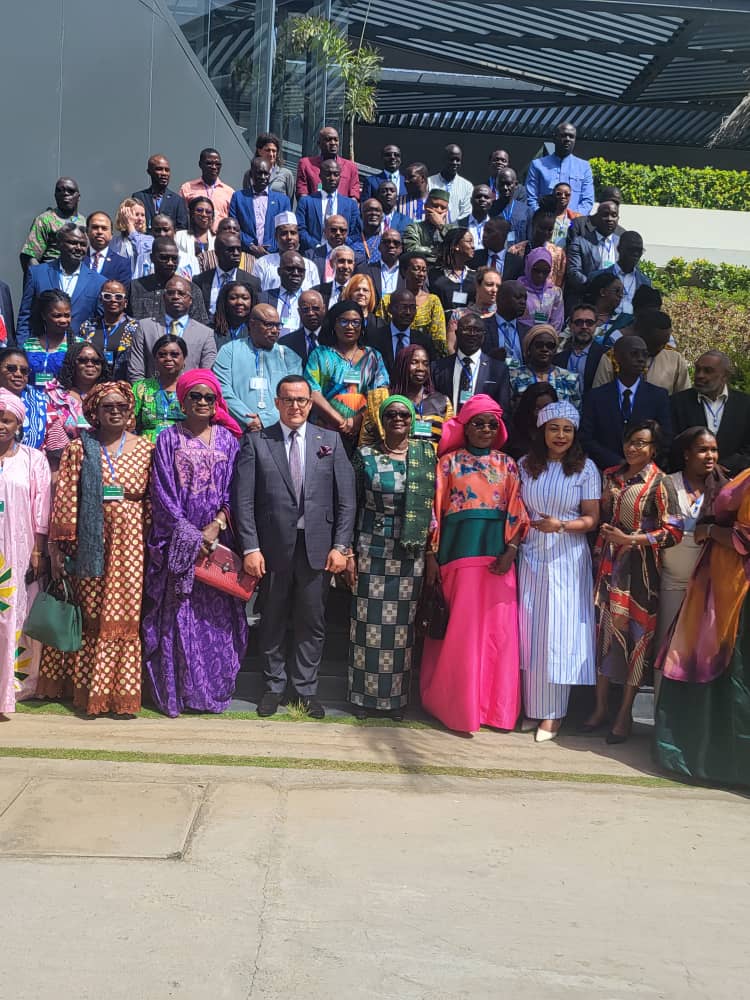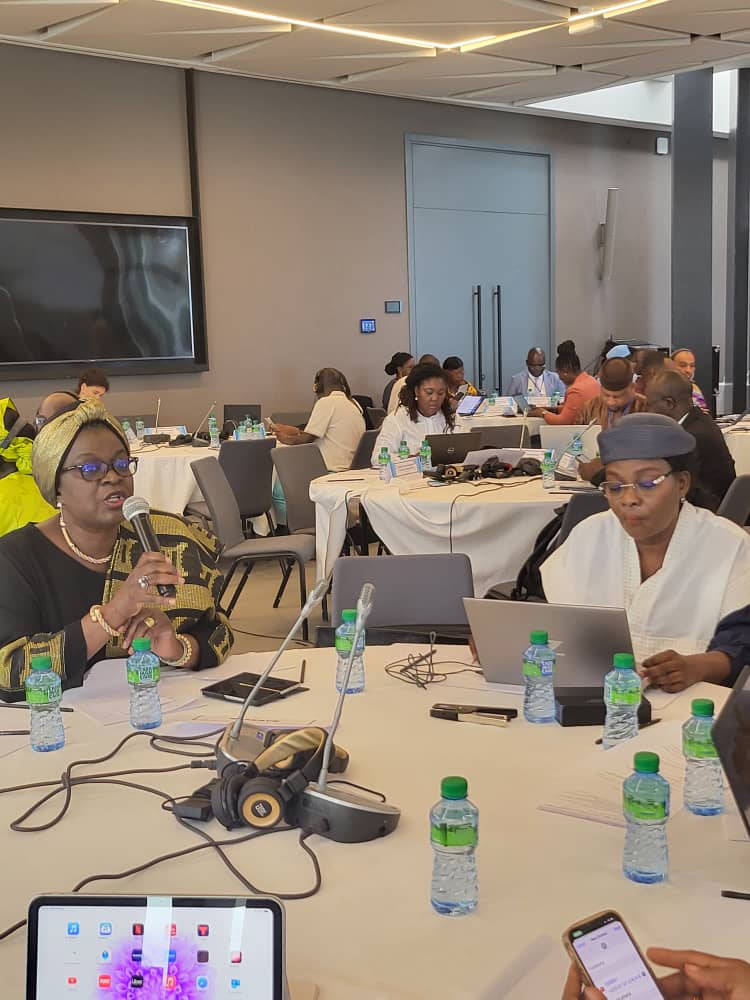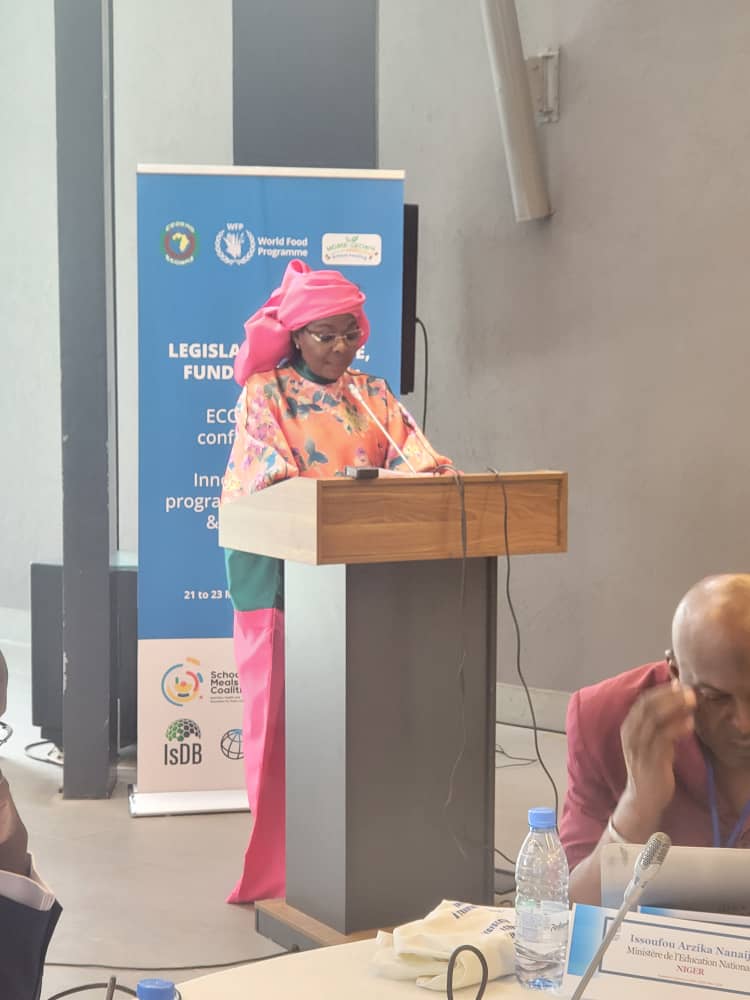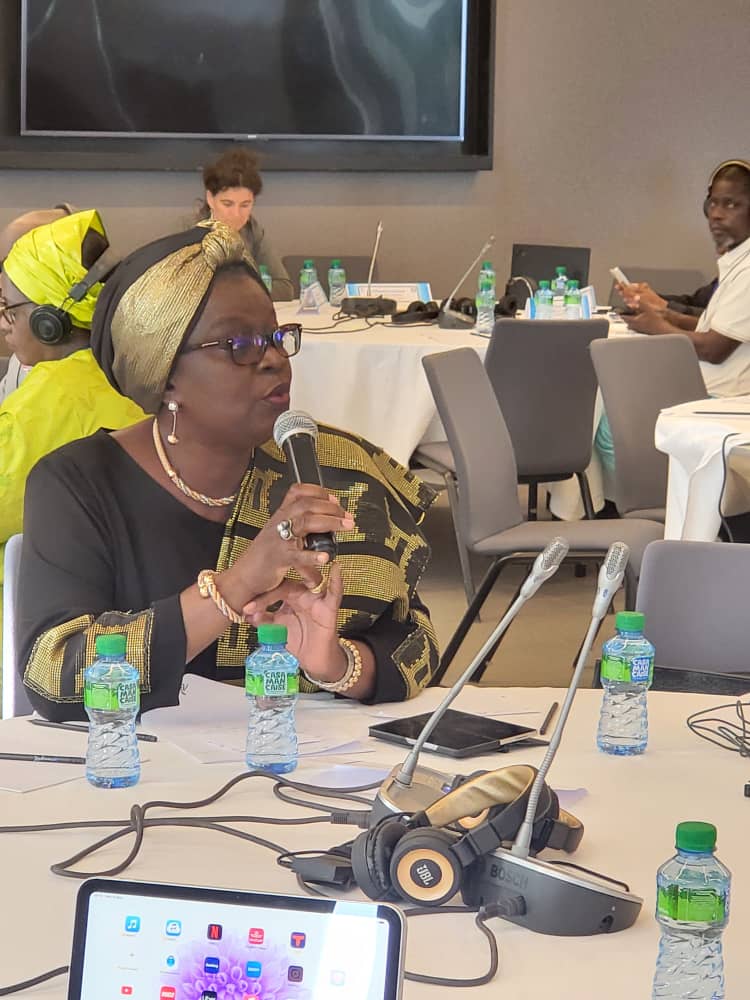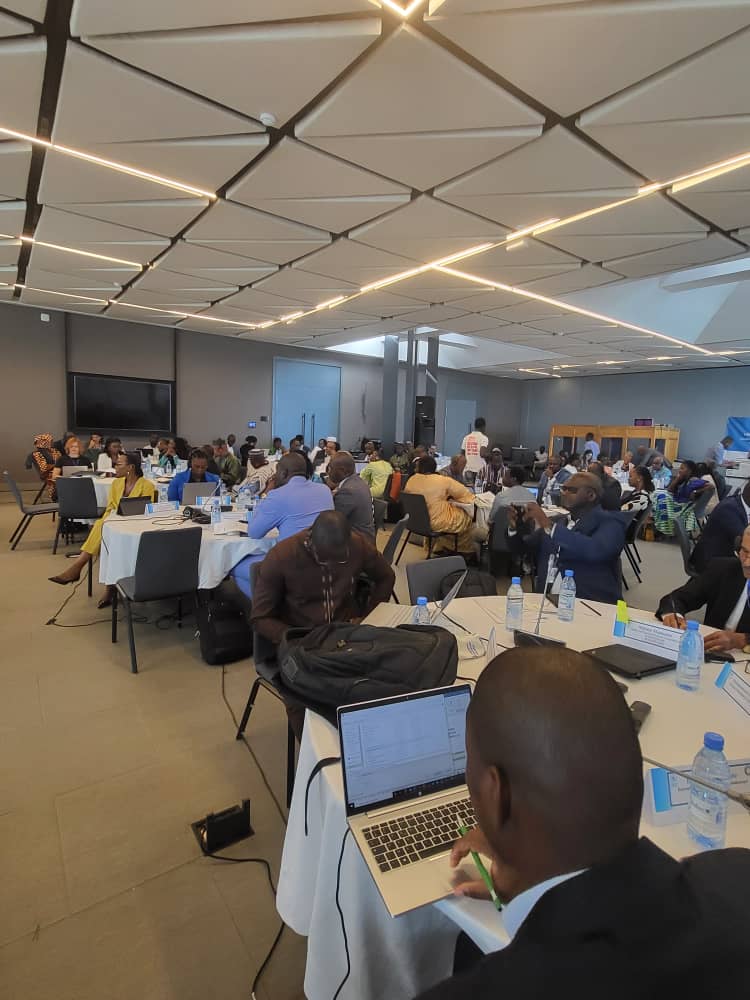Second Regional Technical Conference on School Feeding Based on Local Production (ASPL): ECOWAS Member States Commit to Expanding and Improving the Quality and Sustainability of School Feeding Programmes in West Africa
31 May, 2024The Economic Community of West African States (ECOWAS) and the United Nations World Food Programme (WFP), with the support of the School Feeding Coalition and the International Financial Institutions (IFIs), concluded a three-day regional technical conference in Dakar, Senegal, from 21 to 23 May 2024, on school feeding based on local products in West Africa.
Under the theme “Legislating for change, financing the future”, the conference was attended by experts from the Ministries of Education, Agriculture and Economy and Finance of ECOWAS Member States, Central African countries, international technical partners providing support for school feeding programmes and major international financial institutions (World Bank, Islamic Development Bank, African Development Bank, Agence Française de Développement).
During the 3 days of work, participants reviewed the challenges and opportunities linked to the sustainable financing of school feeding programmes in countries, the establishment of a more ambitious national regulatory framework for school feeding, and the opportunities offered by school canteen programmes to support local agriculture and improve the nutritional status of schoolchildren. The conference also provided a forum for countries to learn from each other and capitalise on best practice in designing and implementing sustainable school feeding programmes based on local production.
The ECOWAS Commission was represented by Mrs Massandje TOURE-LITSE and Prof Fatou SOW SARR, respectively Commissioner for Economic Affairs and Agriculture and Commissioner for Human Development and Social Affairs.
In her address to the participants, Professor Fatou SOW SARR stressed the need for political will on the part of governments, without which no effective and sustainable school feeding strategy can be envisaged. This must be reflected in the inclusion of school feeding as a national priority, its institutionalisation, the allocation of substantial resources and the establishment of a system of accountability. Finally, on behalf of the Commission, she thanked all the technical and financial partners who are working alongside the Member States to achieve the shared noble ambition of guaranteeing a hot, healthy and nutritious meal for every schoolchild in West Africa, based on local agricultural products.
During the conference, Mrs Massandje TOURE-LITSE reiterated ECOWAS Commission’s commitment to supporting Member States in setting up and running sustainable school feeding programmes. To this end, she announced that the ECOWAS Commission had mobilised 4.5 million euros to finance the Support Project for Innovative School Feeding Models in ECOWAS Member States. This follows the contribution in 2023 of 1 million US dollars to the school canteen programme in the Republic of Cabo Verde, which enabled 90,000 pupils to be catered for during the 2023-2024 school year.




